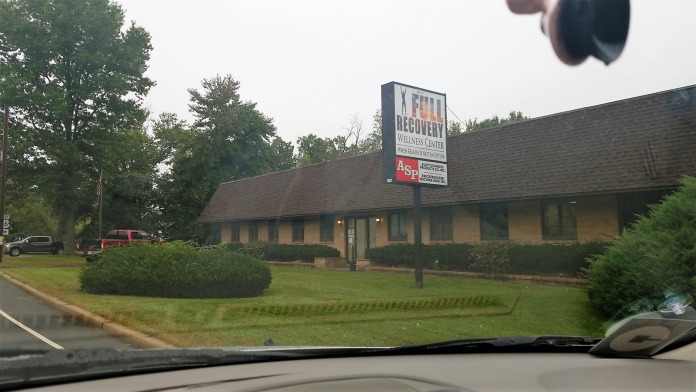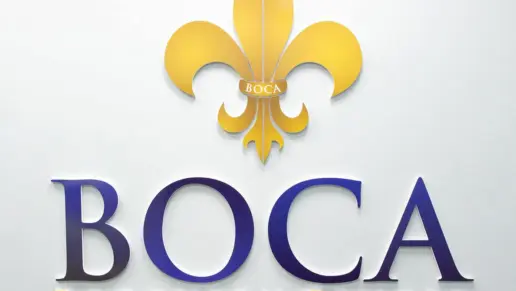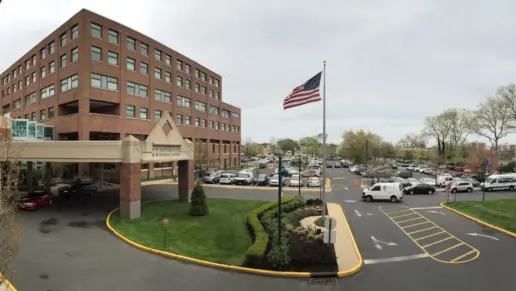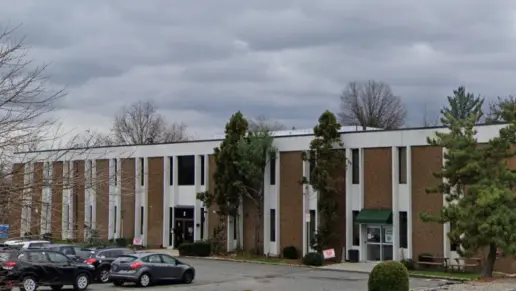I wish all of the staff continuous success in their passion. They are restoring lives and generations of families in this place, please keep it up!
About Full Recovery Wellness Center
Healing Heroes Inc. provides tailored outpatient care in Fairfield, New Jersey. They welcome all active military personnel, veterans, and active or retired first responders. Here, you can participate in specialized addiction, mental health and co-occurring disorder care.
Outpatient care allows you to live at home and attend treatment on a schedule that works for you. They maximize treatment flexibility, offering virtual, in person and hybrid options. You can access personalized care tailored to address the unique challenges military personnel and first responders face. They offer group and individual therapy to explore the interconnectedness of struggles like addiction, mental health, family dynamics and trauma.
What stands out most to me is their holistic services. They provide mindfulness based groups, expressive art therapies, psychoeducational groups and personalized nutrition plans. You’ll benefit from physical, mental, emotional and spiritual healing. These practices can help enhance your self-awareness and reduce stress. Additionally, you’ll discover new self-care and coping skills to advance in recovery.
I also think their family services are great. You can participate in couples and family therapy to work through the scars on relationships left by addiction. You and your loved ones can grow together as a unit while learning more about addiction and recovery. They also offer parenting and co-parenting consultations. These services can help you improve communication, rebuild trust, and create a healthy family dynamic to support your journey.
Lastly, I think it’s wonderful that they use a trauma-informed approach. You’ll receive compassionate care that accounts for past traumatic experiences and helps you overcome them. You’ll benefit from a safe, supportive environment to work through these challenges and promote long term recovery.
Rehab Score
Gallery

Location
Other Forms of Payment
Self-pay involves paying for treatment out of your own pocket. You can use savings or credit, get a personal loan, or receive help from family and friends to fund your treatment. If you don't have insurance or your insurance plan doesn't cover a specific program, self-pay can help ensure you still get the care you need.
Private insurance refers to any kind of healthcare coverage that isn't from the state or federal government. This includes individual and family plans offered by an employer or purchased from the Insurance Marketplace. Every plan will have different requirements and out of pocket costs so be sure to get the full details before you start treatment.
Financial aid can take many forms. Centers may have grants or scholarships available to clients who meet eligibility requirements. Programs that receive SAMHSA grants may have financial aid available for those who need treatment as well. Grants and scholarships can help you pai for treatment without having to repay.
Addiction Treatments
Levels of Care
Treatments
The goal of treatment for alcoholism is abstinence. Those with poor social support, poor motivation, or psychiatric disorders tend to relapse within a few years of treatment. For these people, success is measured by longer periods of abstinence, reduced use of alcohol, better health, and improved social functioning. Recovery and Maintenance are usually based on 12 step programs and AA meetings.
Drug rehab in New Jersey is the process of addressing the complex issues involved with addiction. Challenges are identified and addressed through individual and group counseling. Participants learn how to manage these issues without the use of substances.
Many of those suffering from addiction also suffer from mental or emotional illnesses like schizophrenia, bipolar disorder, depression, or anxiety disorders. Rehab and other substance abuse facilities treating those with a dual diagnosis or co-occurring disorder administer psychiatric treatment to address the person's mental health issue in addition to drug and alcohol rehabilitation.
Opioid rehabs specialize in supporting those recovering from opioid addiction. They treat those suffering from addiction to illegal opioids like heroin, as well as prescription drugs like oxycodone. These centers typically combine both physical as well as mental and emotional support to help stop addiction. Physical support often includes medical detox and subsequent medical support (including medication), and mental support includes in-depth therapy to address the underlying causes of addiction.
Substance rehabs focus on helping individuals recover from substance abuse, including alcohol and drug addiction (both illegal and prescription drugs). They often include the opportunity to engage in both individual as well as group therapy.
Programs


Clinical Services
Whether a marriage or other committed relationship, an intimate partnership is one of the most important aspects of a person's life. Drug and alcohol addiction affects both members of a couple in deep and meaningful ways, as does rehab and recovery. Couples therapy and other couples-focused treatment programs are significant parts of exploring triggers of addiction, as well as learning how to build healthy patterns to support ongoing sobriety.
They offer programs designed to help spouses and family members of those in recovery rediscover their joy and peace. Their holistic services, as well as individual and group counseling for the family offers solutions that can bring peace back into a chaotic family and home life situation. Full Recovery Counselors have the experience to remove frustration, fear and anxiety from the recovery process for both those in recovery, and the people that love them.
Group therapy is any therapeutic work that happens in a group (not one-on-one). There are a number of different group therapy modalities, including support groups, experiential therapy, psycho-education, and more. Group therapy involves treatment as well as processing interaction between group members.
Hypnotherapy (aka guided hypnosis) can be used as a therapeutic modality to treat substance use, especially in terms of quitting smoking cigarettes (nicotine). Clinical hypnotherapists help clients turn their attention inward, accessing unconscious or subconscious material, and then make suggestions that are healthier for the individual. The process can help clients make deep, positive, and lasting changes, including ceasing addictive habits.
This comprehensive package integrates recovery principles and spiritual concepts with leadership, relationship and career skills to guide individuals to long-term sobriety, contribution and prosperity. This is a completely customizable program unlike any other. They have the right counselor with the right skills to take your recovery to the next level regardless of where you are currently at in the recovery process.
Life skills trainings involve all the skills a person must have in order to function successfully in the world. These include time management, career guidance, money management, and effective communication. Truly successful addiction recovery is based on the ability to not only live substance-free, but to thrive. Life skills teaches the practical necessities of functioning in society, which sets clients up for success in life, and therefore sobriety.
Nicotine Replacement Therapy (NRT) is a way of getting nicotine into the bloodstream without smoking. It uses products that supply low doses of nicotine to help people stop smoking. The goal of therapy is to cut down on cravings for nicotine and ease the symptoms of nicotine withdrawal.
Amenities
-
Residential Setting
-
Private Setting
Accreditations

The Commission on Accreditation of Rehabilitation Facilities (CARF) is a non-profit organization that specifically accredits rehab organizations. Founded in 1966, CARF's, mission is to help service providers like rehab facilities maintain high standards of care.
CARF Accreditation: Yes
Contact Information
87 Fairfield Road
Fairfield, NJ 07004


